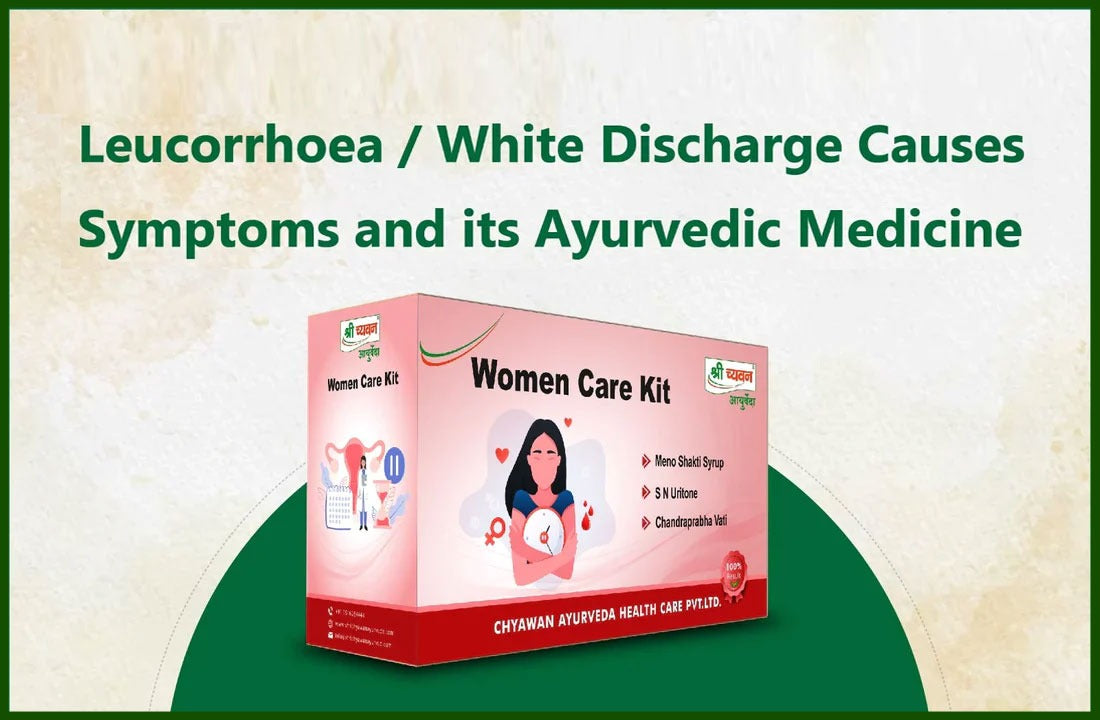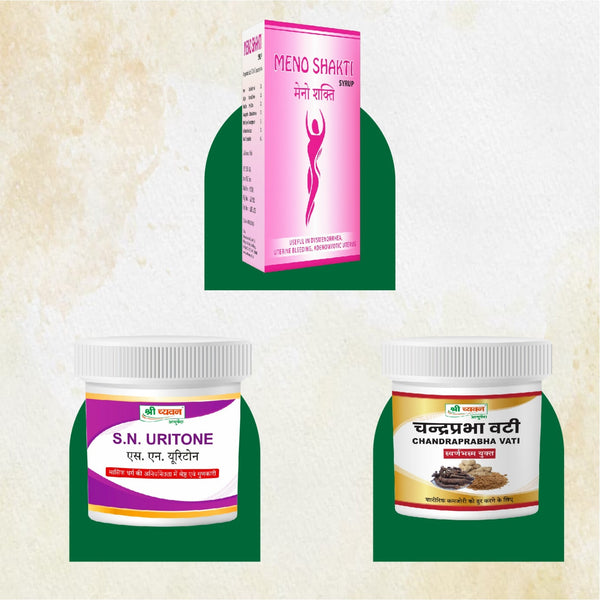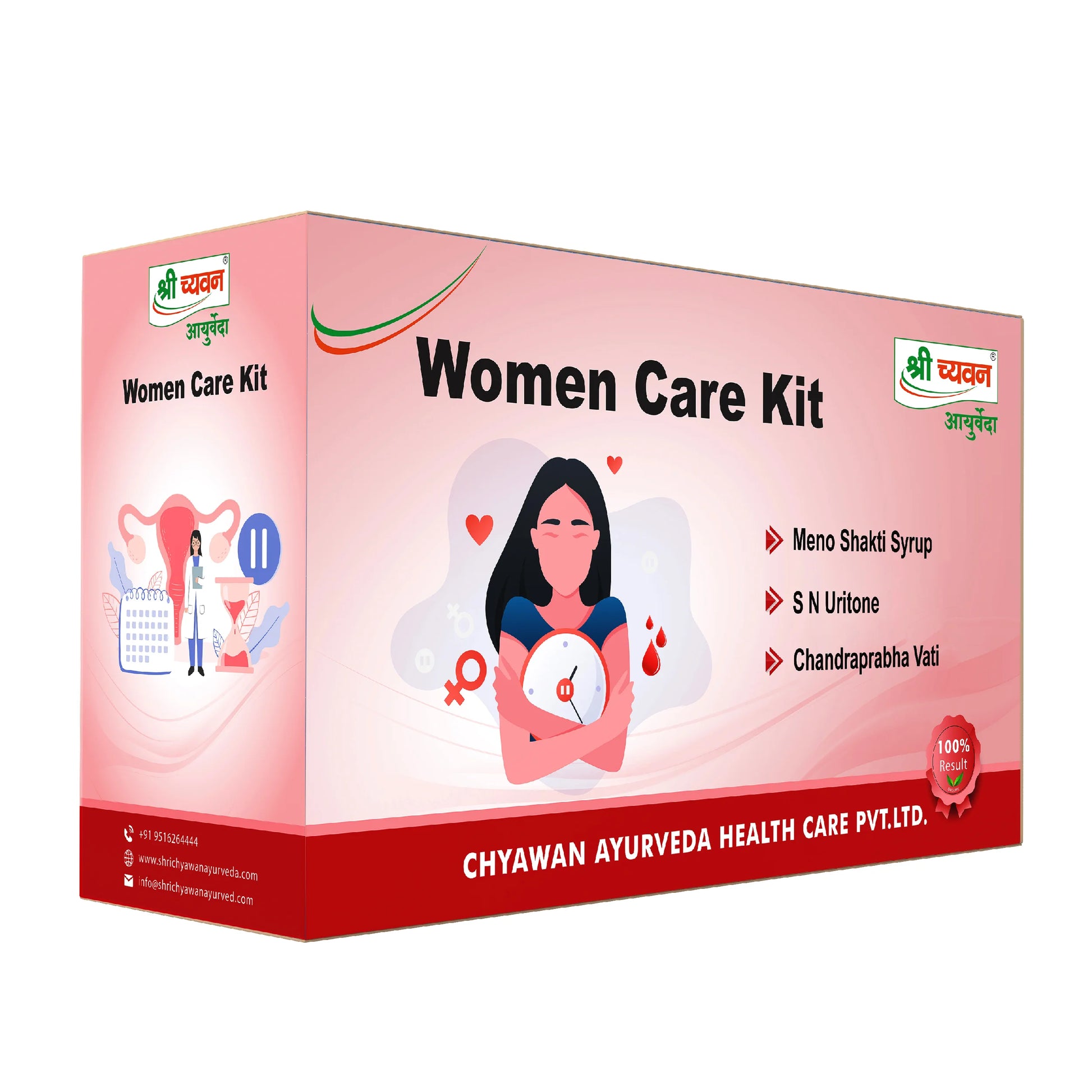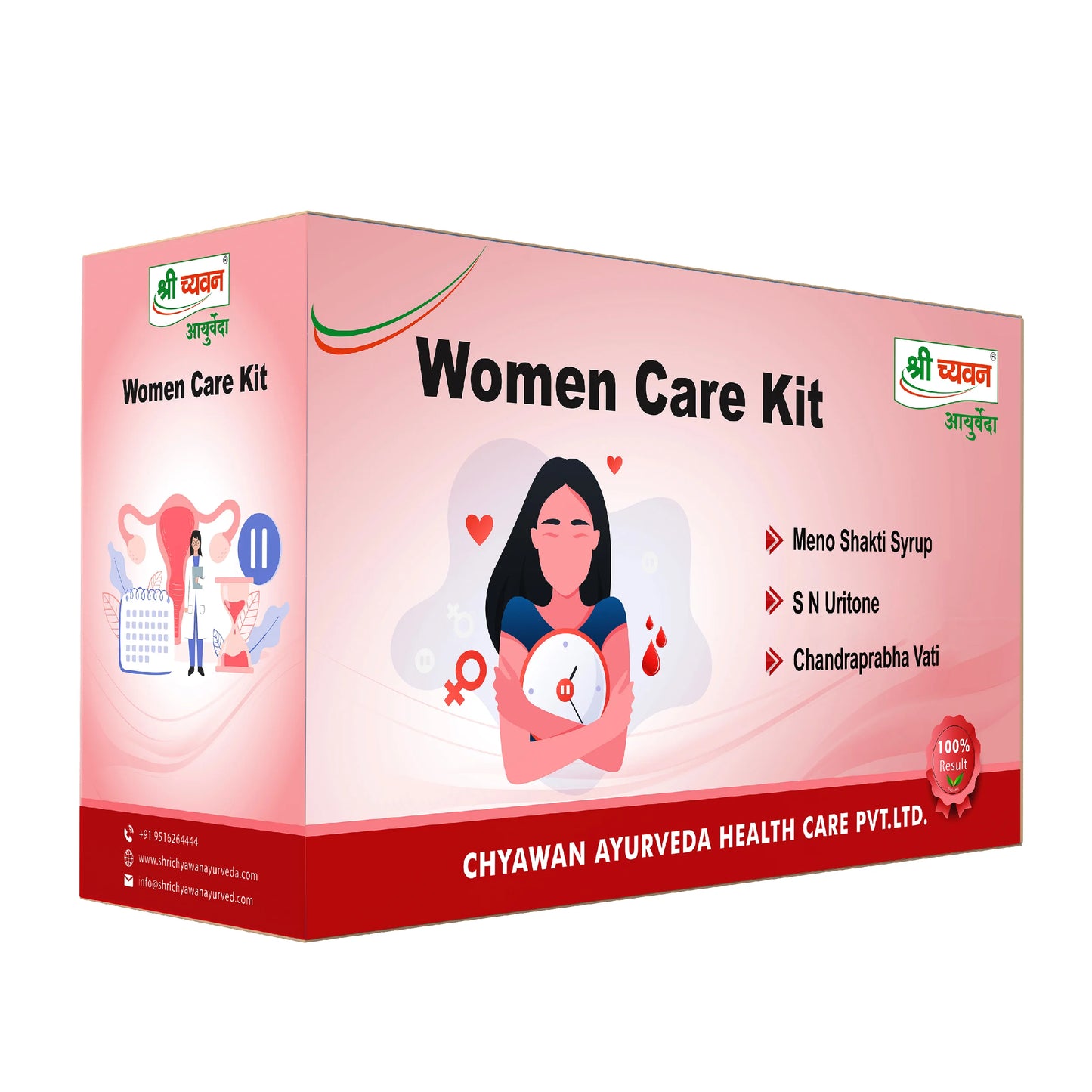Likoria / Leucorrhoea, in medical term it is describe as a thick, whitish or yellowish vaginal discharge in females. This discharge is a normal part of the female reproductive system and serves to keep the vagina clean and moist while also helping to prevent infection.
However, excessive or abnormal Leucorrhoea can be a symptom of an underlying issue, such as an infection, hormonal imbalance, or other gynaecological conditions. It's essential to note that while some changes in vaginal discharge are normal and occur throughout a woman's menstrual cycle, any sudden or significant change in the color, odor, consistency, or amount of discharge should be discussed with a healthcare provider. This is particularly important if the discharge is accompanied by other symptoms like itching, burning, pain, or discomfort, as it could be a sign of an underlying health issue that requires medical attention.
Leucorrhoea Causes
Leucorrhoea, which refers to a white or yellowish vaginal discharge in females, can be caused by a variety of factors, and its occurrence can vary depending on an individual's menstrual cycle, age, and overall health. Here are some common causes of leukorrhea:
- Hormonal Changes: Fluctuations in hormone levels, particularly estrogen, can affect the consistency and amount of vaginal discharge. These changes often occur during different stages of a woman's reproductive life, including:
- Menstrual Cycle: Vaginal discharge tends to be thinner and clearer around the time of ovulation (mid-cycle) due to the surge in estrogen.
- Pregnancy: Increased estrogen levels during pregnancy can lead to a thicker, white or milky discharge.
-
Menopause: A decrease in estrogen levels after menopause can result in a thinner, drier vaginal discharge.
-
Infections: Infections can cause abnormal or excessive vaginal discharge. These infections can be bacterial, fungal (yeast infections), or caused by sexually transmitted infections (STIs) such as chlamydia, gonorrhea, or trichomoniasis. Infections may be accompanied by other symptoms like itching, burning, redness, or odor.
- Non-Infectious Causes: Non-infectious factors can also lead to changes in vaginal discharge, including:
- Stress: Emotional or physical stress can affect hormonal balance and lead to changes in discharge.
- Medications: Some medications, such as antibiotics, birth control pills, and hormone therapy, can influence vaginal discharge as a side effect.
-
Hygiene Practices: Harsh soaps, douching, or the use of certain hygiene products can irritate the vaginal area and alter discharge.
-
Sexual Arousal: Increased sexual arousal can lead to an increase in vaginal lubrication, which may be mistaken for Leucorrhoea.
- Cervical Mucus: Changes in cervical mucus consistency throughout the menstrual cycle can also contribute to variations in vaginal discharge. Around the time of ovulation, cervical mucus tends to become more transparent and stretchy.
What are the diseases caused due to Leucorrhoea?
Leucorrhoea itself is not a disease but rather a symptom of an underlying issue, such as an infection, hormonal imbalance, or other gynaecological condition. It's essential to identify and address the underlying cause of leukorrhea to prevent or treat any associated diseases or complications. Some of the diseases and conditions that can be associated with leukorrhea include:
-
Bacterial Infections: Excessive or abnormal leukorrhea may be a symptom of bacterial infections such as bacterial vaginosis (BV). If left untreated, BV can lead to complications like pelvic inflammatory disease (PID), which can cause infertility and chronic pelvic pain.
-
Fungal Infections: Yeast infections, specifically caused by Candida species, can lead to leukorrhea with a thick, white, cottage cheese-like discharge. Recurrent or untreated yeast infections can cause discomfort and may need medical attention.
-
Sexually Transmitted Infections (STIs): Certain STIs, like chlamydia, gonorrhea, and trichomoniasis, can cause changes in vaginal discharge, including increased or discolored discharge. If left untreated, these infections can lead to more serious health problems, including pelvic inflammatory disease (PID), infertility, and increased risk of HIV transmission.
-
Pelvic Inflammatory Disease (PID): PID is a serious infection that can result from untreated STIs or infections in the reproductive organs. It can lead to chronic pelvic pain, infertility, and an increased risk of ectopic pregnancy.
-
Hormonal Imbalances: Hormonal imbalances, such as those seen in conditions like polycystic ovary syndrome (PCOS) or thyroid disorders, can sometimes cause changes in vaginal discharge. Addressing the underlying hormonal issue can help manage these symptoms.
- Cervical Abnormalities: Conditions like cervical polyps or cervical ectropion (a common benign condition where cervical cells appear on the outer cervix) can sometimes be associated with changes in discharge. These conditions may require evaluation and treatment by a healthcare provider.
It's crucial to remember that Leucorrhoea can also occur due to normal hormonal fluctuations during a woman's menstrual cycle or during pregnancy. However, if you experience unusual or bothersome changes in vaginal discharge, it's important to consult a healthcare professional for a proper diagnosis and appropriate treatment. Early detection and treatment of any underlying conditions can help prevent complications and related diseases.
It's important to note that while some changes in vaginal discharge are normal and part of a healthy reproductive system, any sudden or significant change in color, odor, consistency, or amount of discharge should be discussed with a healthcare provider. This is especially important if the discharge is associated with discomfort or other symptoms, as it could be a sign of an underlying condition that requires medical evaluation and treatment. Regular gynaecological check-ups are advisable to monitor and maintain reproductive health.
How can you treat Leucorrhoea with Ayurveda?
Ayurveda, a traditional system of medicine that originated in India, offers natural remedies and approaches to address various health issues, including Leucorrhoea. It's important to note that while Ayurveda can provide holistic and natural methods to alleviate symptoms, it should not replace conventional medical treatment, especially when dealing with underlying infections or serious conditions.
Shri Chyawan Ayurveda has formulated an effective ayurvedic medicine for Leucorrhoea - Women Care Kit. It is made up of a combination of natural and ayurvedic products which makes it trustworthy and safe for use.
Our Women Care Kit is an ideal Leucorrhoea treatment in Ayurveda. It is also beneficial for irregular periods, Menopause, period pain, and brown discharge with proven results.
The Women Care Kit contains -
1. Chandraprabha Vati: Shri Chyawan Ayurveda's Chandraprabha Vati helps to reduce the level of uric acid, keeping vaginal infections away.
Ingredients: It consists Swarn Bhasm, Vai Vidang, Chitrak Bark, Daruharidra, Devdaru, Camphor, Pipalmool, Nagarmotha, Pippal, Kali Mirch, Yavkshar, Vach, Dhania, Chavya, Gajpipal, Sounth, Sendha Namak, Nishoth, Dantimool, Tejpatra, Chhoti elaichi.
How to Use: Consume 1 tablet at night before going to bed.
- S.N. Uritone Capsule: Provides relief from period pain, irregular periods, white or brown discharge, and back and pelvic pain.
Ingredients: It consists of ingredients like Pashan Bhed, Esogen, Kumkum, Ativish, Logrh, Loh Bhasm, Madhuyasti, Tramr Bhasm, Vang Bhasm, Pipli, Chav, Vach, Hapusha, Dev Daru, Aela, Rakt Chandan, Chitramul.
How to use: Twice a day after meals i.e., post lunch and dinner.
- Menoshakti Syrup: Helps in irregular periods and hormonal imbalance. It helps to maintain estrogen levels, considerably reduces stress and anxiety, and reduces hot flashes and night sweats.
Ingredients: It consists of Gooler fruit, Ashoka Bark, Methi, Nag Keshar, Nagar Motha, Punarnava, Clove, Jaiphal, Trikuta, Triphala, Nagarvel, Mulethi.
How to use: Consume 4 tablespoons twice a day after meals i.e., post lunch and dinner.
Other ayurvedic remedies/suggested treatment for Leucorrhoea:
Here are some Ayurvedic recommendations that may be used to manage leukorrhea:
- Dietary Modifications:
- Incorporate a balanced diet with an emphasis on fresh fruits, vegetables, and whole grains.
- Avoid spicy, greasy, and fried foods, as well as excessive sugar and dairy products.
- Drink plenty of water to stay hydrated.
- Herbal Remedies:
- Ayurvedic herbs and formulations like Ashoka (Saraca asoca), Lodhra (Symplocos racemosa), Shatavari (Asparagus racemosus), and Neem (Azadirachta indica) may be used to address leukorrhea.
- Triphala, an herbal formula made from three fruits, is often recommended for overall reproductive health.
- Personal Hygiene:
- Maintain proper genital hygiene to prevent further irritation. Use mild, non-irritating soaps or herbal washes specifically designed for intimate areas.
- Avoid douching, as it can disrupt the natural balance of vaginal flora.
- Lifestyle Recommendations:
- Practice stress-reduction techniques such as yoga, meditation, and deep breathing exercises, as stress can contribute to hormonal imbalances.
- Ensure adequate sleep and rest.
- Yoga and Exercise:
- Certain yoga asanas (postures) and pelvic floor exercises may help improve pelvic circulation and strengthen the pelvic muscles, potentially assisting in managing Leucorrhoea.
- Ayurvedic Supplements:
- Ayurvedic practitioners may recommend specific herbal supplements or formulations tailored to your individual constitution (Prakriti) and the underlying causes of Leucorrhoea.
- Panchakarma:
- Panchakarma is a traditional Ayurvedic detoxification and rejuvenation therapy that may be recommended in some cases to balance the doshas (Vata, Pitta, Kapha) and promote overall health.
It's important to remember that Ayurvedic treatments are individualized based on a person's unique constitution and the underlying causes of their health issues. Consultation with a qualified Ayurvedic practitioner is essential to receive personalized guidance and treatment. Additionally, if Leucorrhoea is caused by an infection or a serious underlying condition, it is crucial to seek conventional medical care and follow the advice of a healthcare professional to address the root cause. Ayurveda can complement conventional medicine but should not be used as a sole treatment for serious medical conditions.








